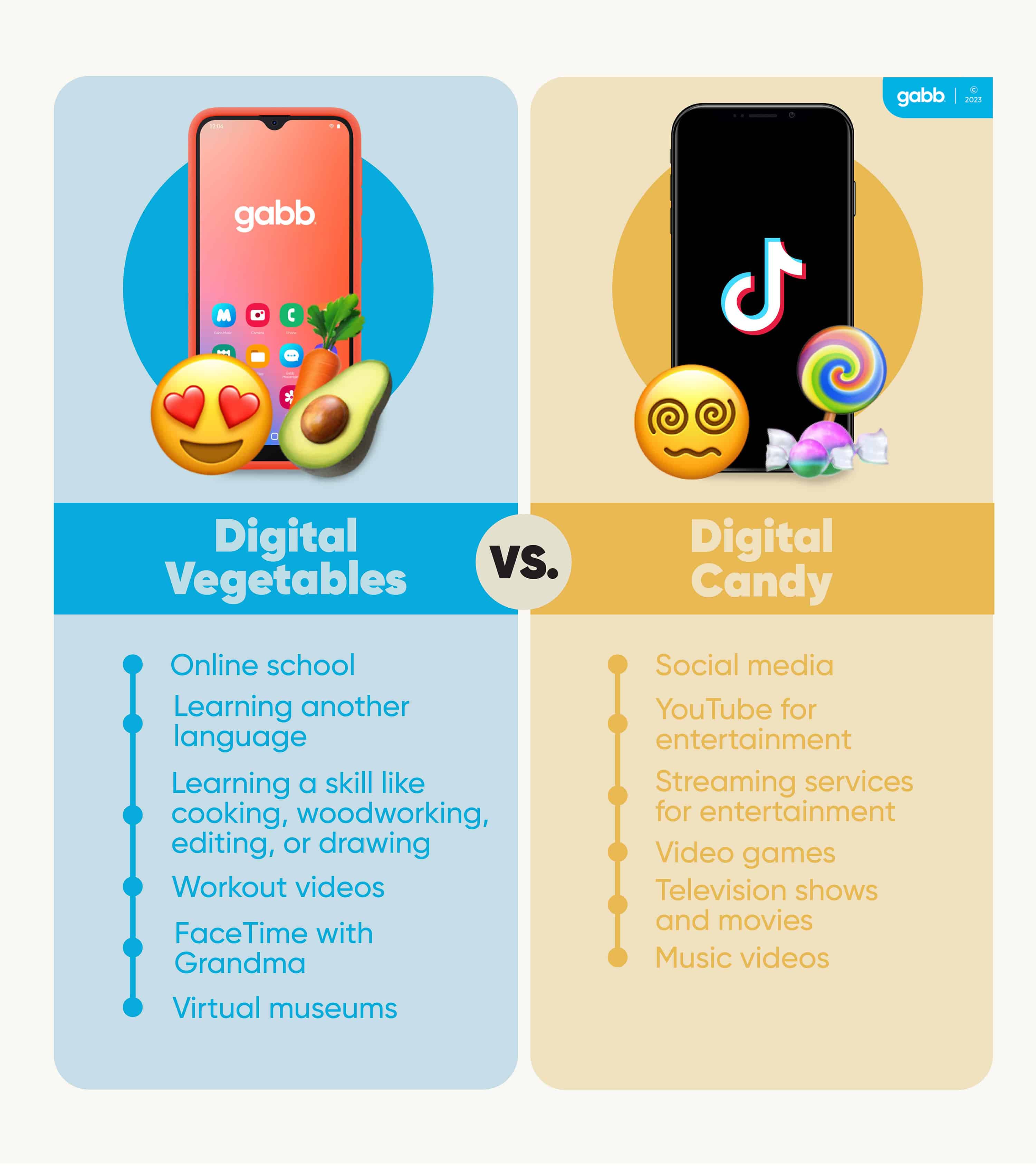Gabb Family Resources welcomes Arlene Pellicane as a guest writer. Her insights and expertise will empower all of us to parent in the digital age.
Your child is sitting on the couch with her tablet on her lap. Maybe you have a certain amount of time allotted for her to spend online. Does it matter what she is actually doing? Isn’t all screen time basically the same?
Let’s zoom in on what she’s doing. Is she watching the latest music video from her favorite pop star? Is she learning how to knit a beanie for a friend? Those are two very different ways to use the internet during her free time. One is digital candy and the other is a digital vegetable. Let me explain.
What are Digital Vegetables and Digital Candy?
In our physical bodies, we function best when we are powered by vegetables and other nutrient-rich foods. If we ate candy for breakfast, lunch, and dinner, it might be a lot of fun, but we would certainly have a stomach ache in the short term and a disease like diabetes in the long term. Kids don’t have to be encouraged to eat sweets, but they certainly have to be sold on the merits of broccoli.
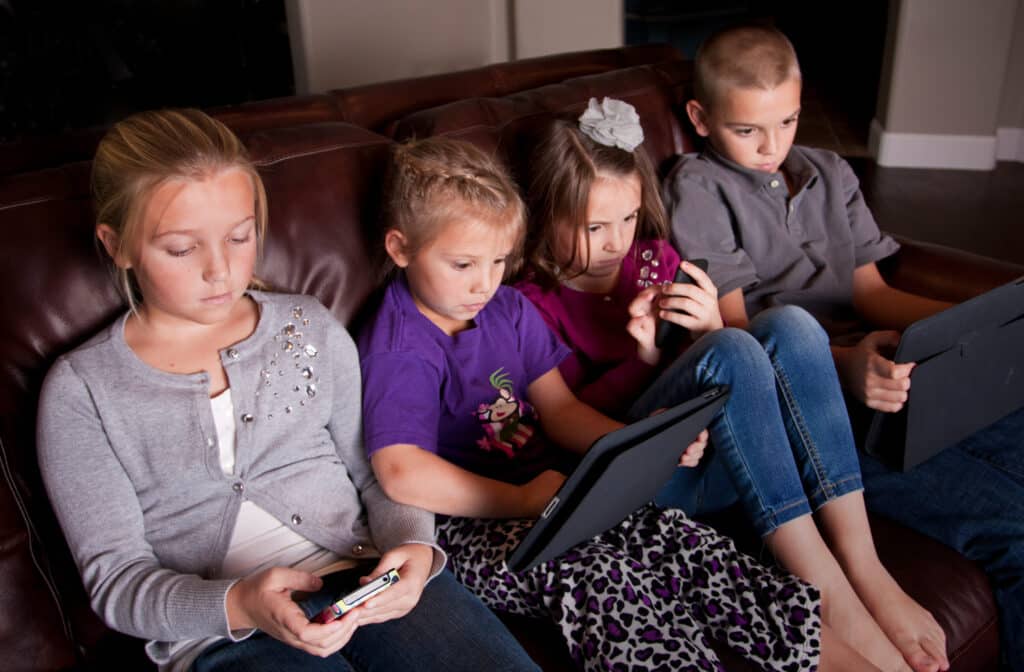
The same is true in the digital world. There is content that is healthy and content that is unhealthy. There are digital vegetables that are good for your kids. This is probably why you bought a device in the first place–for positive uses.
Things like staying in touch with family and accessing learning tools. Kids don’t get in trouble over digital vegetables. No parent has ever said, “It’s three o’clock in the morning. Why in the world are you watching a lecture series on economics???”

The Difference Between Digital Vegetables and Digital Candy
How can you tell the difference between a digital vegetable and digital candy? It’s pretty easy once you know what you’re looking for. Here are some examples:
Which category is winning? As you’ve experienced, kids want candy all day long! And once they eat some digital candy, they don’t want to eat digital vegetables. It is just like when your child has a big donut before lunch—it spoils their appetite.
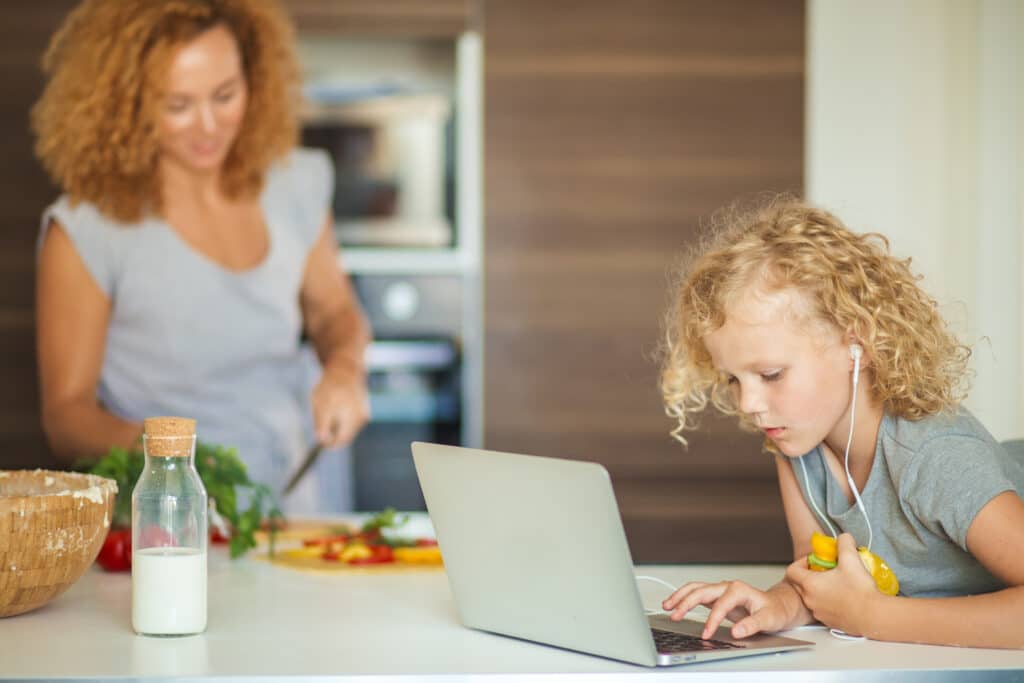
I’ll be honest. This digital candy thing can be kind of magical. Kids will sit still for hours allowing you to get all sorts of work done while they binge on YouTube or play video games.
We must admit as parents these digital candy treats make life easier for us. But let’s not be fooled—this is just a short-term benefit. Just like eating poorly will catch up to our physical bodies, eating digital candy all day will also catch up in the form of underdeveloped brains, empty souls, non-existent relationships, and so much more.
It’s not a fair fight. Big tech has programmed and tested relentlessly to find out what keeps our children (and us) hooked on our devices.
Douglas Gentile, psychology professor at Iowa State University, says, “It’s been getting harder for parents to really monitor a lot of what their kids are seeing and doing. At the same time, they’re relying on the seeming benefit of being able to quiet the kids at a restaurant with a device…We may be building a bit of Frankenstein’s monster, because we’re using that power for our benefit, not for the child’s benefit.” [1]
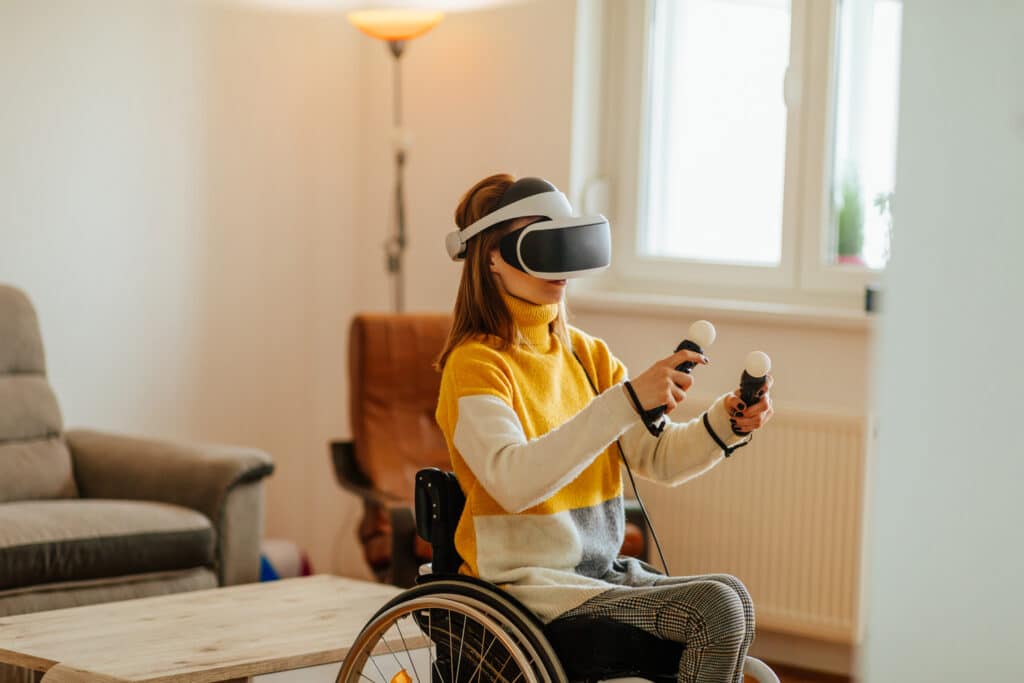
The Dangers of Digital Candy
If I put a family size bag of M&Ms on my desk and told myself I would only eat ten a day, what would happen? I would definitely eat more than ten! I just do not possess that kind of self control.
That’s a picture of what it’s like when we give a child access to a smartphone or tablet and say, “Just play one game” or “Just watch one video.” Even if your child is obedient and good hearted, he or she will be fighting the temptation all day long to grab that device to see what digital candy is being served next.
It’s not a fair fight. Big tech has programmed and tested relentlessly to find out what keeps our children (and us) hooked on our devices. For example, before Netflix introduced “post-play” in 2012, you had to choose to watch another episode. Now you have to choose not to watch.
That little change has ushered in an age of binging on digital candy. That change was not an accident or coincidence. Big tech wants your children eating digital candy, and lots of it.
Time Wasted
According to a 2021 Common Sense Media Report [2], media use in tweens and teens has grown faster since the start of the pandemic than it has over the four years prior to the pandemic. Do we think that’s because kids are consuming so many digital vegetables? We don’t have to look around very far to know that is not the case. Ask the average child what they are doing online and he will not say “Skyping grandma” or “learning math.” He’s playing a video game or watching an action movie.
Between 2019 and 2021, the total amount of daily screen media went from 4 hours and 44 minutes to 5 hours and 33 minutes among tweens, and from 7 hours and 22 minutes to 8 hours and 39 minutes among teens. [2] Researchers included time spent reading ebooks in these totals.
Reading e-books only accounted for 6 minutes among tweens and 8 minutes among teens of the multiple hours they spend online. [2]
Reading would be considered a digital vegetable. But reading e-books only accounted for 6 minutes among tweens and 8 minutes among teens. [2] That’s like eating one baby carrot with a huge bag of cheese puffs. If forced to choose, teens say YouTube is the digital candy they wouldn’t want to live without. Watching online videos is the favorite media activity among 8 to 18-year-olds.
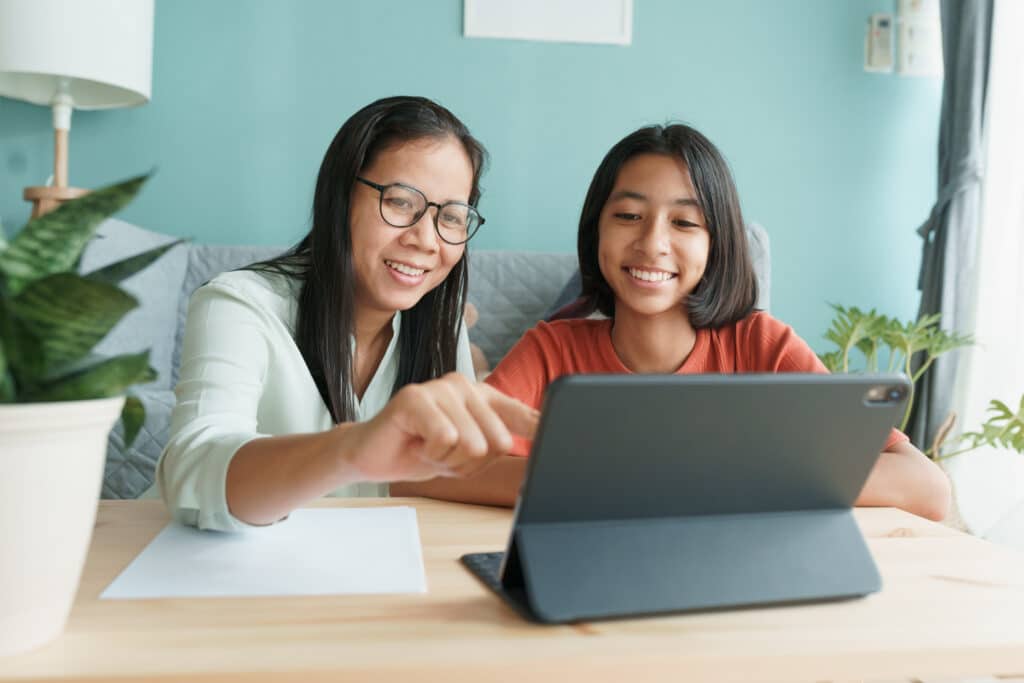
How Parents Can Help
The great thing about digital vegetables and digital candy is that it’s a concept you can explain even to young children. In the same way you are teaching your kids about proper nutrition concerning food, you can teach your kids proper nutrition when it comes to their online life.
A little bit of dessert after a meal could be just fine, just like 30 minutes of entertaining YouTube could be okay after a day filled with exercise, reading, playing, and other activities.
Talk with Your Kids
When your child asks for the tablet, ask her, “Do you want it for a digital vegetable or digital candy?” If your child can start discerning between the two, that will help your child focus on goals in the future, instead of being constantly distracted by digital candy.
A grandfather recently told me his young grandson was using a drawing app and asked, “Papa, is this a digital vegetable?” Little kids can grasp these concepts and as they grow older, it really helps them to connect the dots between their digital intake and their mental health.
Set the Example
So in the same way it’s unhealthy to eat a lot of junk food, it’s unhealthy to consume too much digital candy. Content does matter. Most kids don’t gravitate to vegetables on their own. They’re going to need your help.
The best way you can help is by setting a positive example. Maybe you work from home like I do and your children see you on the computer often. Explain that your work is a digital vegetable, then model healthy habits by keeping the digital candy to a minimum.
It provides instant accountability because if you say you’re working, but your kids see you scrolling through your social media account, they’ll know you’re having a little candy treat.
Many times our kids get healthier when we get healthier. Family revolution often begins with making digital changes in our own lives. Just like our kids, we can ask ourselves before we jump online, is it time for digital vegetables or digital candy?


